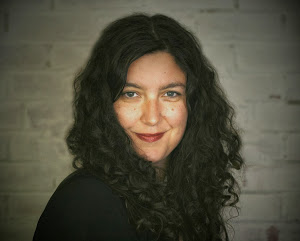Photo Credit: Mary Chiaramonte
Valley Haggard, founder and co-director of Richmond Young Writers, is an avid writer and mentor in the creative nonfiction community. With a B.A. in creative writing from Sarah Lawrence College, Haggard has pursued her passion for all things words. This has led her to write reviews and interview authors for Richmond-based arts and culture publication Style Weekly, serve on the board for James River Writers, and publish her own creative work. In addition, Haggard has taught creative writing through Art 180, the U.Va. Young Writer’s Workshop, the Visual Arts Center, the Virginia Museum of Fine Arts, and the Children’s Museum of Richmond. Her blog, Life in 10 Minutes, is a creative hub that translates the work she does in the community online. In 2014, she received a Theresa Pollak Prize for the arts. We asked her some questions about writing, honesty, and good advice.
What role does truth play in your writing?
Truth is the skeletal structure of my writing but it comes dressed in a lot of different outfits. I’m always trying to gussy it up or strip it bare to best capture its essence. I am clear that my truth may not be anyone else’s and that my truth may even be different for me on a different day. I wish there was just one empirical, ultimate truth we could nail down once and for all, but I have found that putting any experience, idea or memory into words is actually flexible and subjective. I subscribe to the belief that truth is stranger than fiction and have found there to be a never-ending embarrassment of riches to choose from.
How does honesty in storytelling translate to your character?
Even though it’s terrifying, the more honest I’ve been in my writing, the happier I’ve been in my life. Keeping secrets is an enormous and exhausting burden. Every single time I write some new truth about myself I expect the world to end but so far I’ve found acceptance and connection instead. Which is why I keep relentlessly at it. I feel compelled to admit there are some stories that have been cathartic and healing to write that I have yet to share in a public forum but I also believe full frontal honesty can happen in stages.
How do you determine something is worth writing about?
I think of writing as a process of extracting splinters. When I sit down to write, I do a mental, physical and emotional body scan and then extract the biggest splinter first. There’s a usually a lot of energy packed in to whatever comes out. If something causes an emotional reaction in my body, it is inevitably linked to a story worth unpacking or exploring.
What do you find most challenging about writing the truth?
Other than the occasional feeling of wearing the inside of my body on the outside or running through the streets without any pants, the most challenging aspect of writing the truth is worrying and wondering who I might hurt or what people might think. Will the PTA moms give me a wide berth in the hall? Will I jeopardize my marriage, my friendships, my family? Will someone else on Facebook tell me to take my meds? The antidote to this fear has been to keep writing the truth anyway. I don’t have to publish everything I do, think or feel but I’ve found as a writer, I do have to write it. If only for me.
What advice do you give to aspiring creative nonfiction writers and where did you learn that tip?
Set a timer for 10 minutes and start with the words “Right now I am…” Push up against your comfort zone. If there’s an elephant in the room, don’t waste too much time describing the wallpaper. Create structure around your writing but be gentle with yourself. I could go on and on! I’ve just written a handbook for stuck and aspiring writers called “The Halfway House for Writers,” a culmination of the themes and threads that have arisen in my creative nonfiction classes over the last five years that answers this question in a concise 150 pages.









